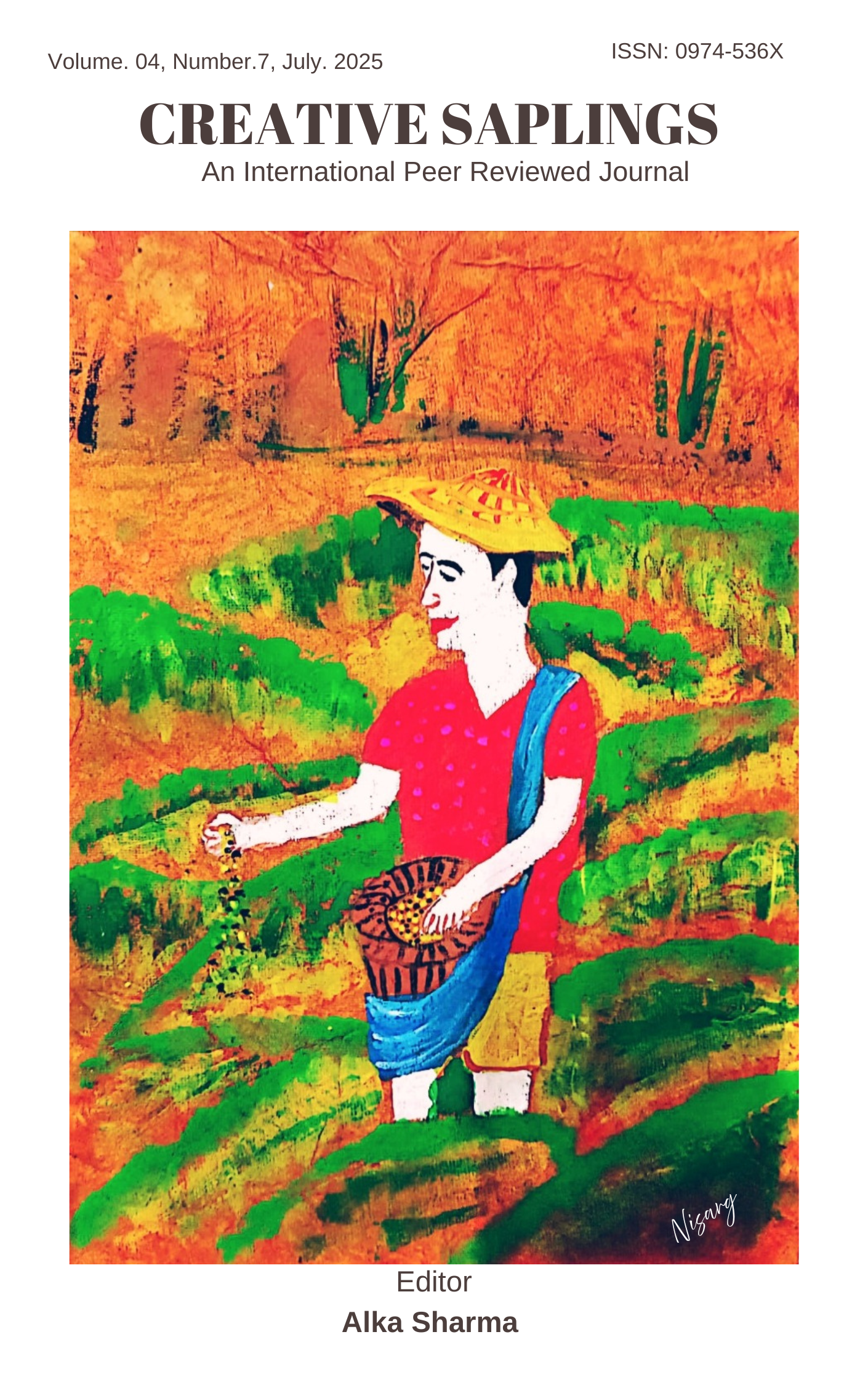A Glimpse of Maya Angelou’s Autobiographies: A Voice of Resilience in a White-Dominated Land
DOI:
https://doi.org/10.56062/gtrs.2025.4.07.974Keywords:
Maya Angelou, autobiographies, resilience, racism, white-dominated society, African American, Black identity, oppression, empowerment, memoir, trauma, resistance, voice.Abstract
Maya Angelou’s autobiographies stand as powerful testimonies of resilience, courage, and self-discovery in a racially oppressive America. Through works such as I Know Why the Caged Bird Sings (1969) and its sequels, Angelou chronicles her journey from childhood trauma to triumphant self-affirmation, channelling her way through the harsh realities of racism, sexism, and personal adversity. This article explores how Angelou’s narrative voice transforms pain into empowerment, offering a defiant yet poetic resistance to systemic oppression. By blending personal memoir with broader sociopolitical commentary, her autobiographies transcend individual experience, becoming universal symbols of Black endurance and dignity.
Angelou’s literary style, rich in metaphor, rhythm, and oral tradition, reflects her roots in African American storytelling and her background as a poet. Her works challenge dominant white narratives by entering Black female subjectivity, reclaiming agency in a society that sought to silence marginalized voices. Themes of identity, displacement, and reconciliation recur as Angelou moves across geographies and emotional landscapes, ultimately asserting an unbreakable spirit.
This article focuses on the key moments in her autobiographies that highlight her resilience, including her confrontation with racism in the Jim Crow South, Ghana, and her struggles with abuse and motherhood, and her later roles as an artist and activist. Ultimately, Angelou’s life writing not only documents her evolution but also serves as a testament to the collective strength of Black women in the face of systemic erasure. Her voice remains a beacon of hope and defiance in a white-dominated world.
Downloads
References
Angelou, Maya. I Know Why the Caged Bird Sings. Random House, 1969.
Angelou, Maya. Gather Together in My Name. Random House, 1974.
Angelou, Maya. Singin’ and Swingin’ and Gettin’ Merry Like Christmas. Random House, 1976.
Angelou, Maya. The Heart of a Woman. Random House, 1981.
Angelou, Maya. All God’s Children Need Traveling Shoes. Random House, 1986.
Angelou, Maya. A Song Flung Up to Heaven. Random House, 2002.
Angelou, Maya. Mom & Me & Mom. Random House, 2013.
Cudjoe, S. R. (1984). Maya Angelou and the autobiographical statement. Black Women Writers (1950-1980): A Critical Evaluation. Nova York: Anchor.
Maya Angelou, ‘I know Why the Cage Bird Sings’, Random House paperback edition (2009, ISBN: 978-0-8129-7493-9).
Maya Angelou, All God's Children Need Traveling Shoes (New York: Random House, 1986),
Dunbar, Paul Laurence. The Complete Poems of Paul Laurence Dunbar. Dodd, Mead, and Lauret, M. (2002). Liberating literature. Routledge.
Lupton, M. J. (1998). Maya Angelou: A Critical Companion. Greenwood Publishing Group.
M. V. (2023). Singing the Power of Black Motherhood in the Autobiographies of Maya Angelou. World Journal of English Language. https://doi.org/10.5430/wjel.v13n6p544
Stuart Hall, “Cultural Identity and Diaspora,” in Jana E. Braziel and Anita Mannur, eds., Theorizing Diaspora: A Reader (Malden, MA: Blackwell Publishers, 2003), 235–6; Kobena Mercer, Welcome to the Jungle: New Positions in Black Cultural Studies (London and New York: Routledge, 1994), 27–8; Sidbury, 8, 73.
Downloads
Published
Issue
Section
License
Copyright (c) 2025 S. Farhad

This work is licensed under a Creative Commons Attribution-NonCommercial 4.0 International License.





